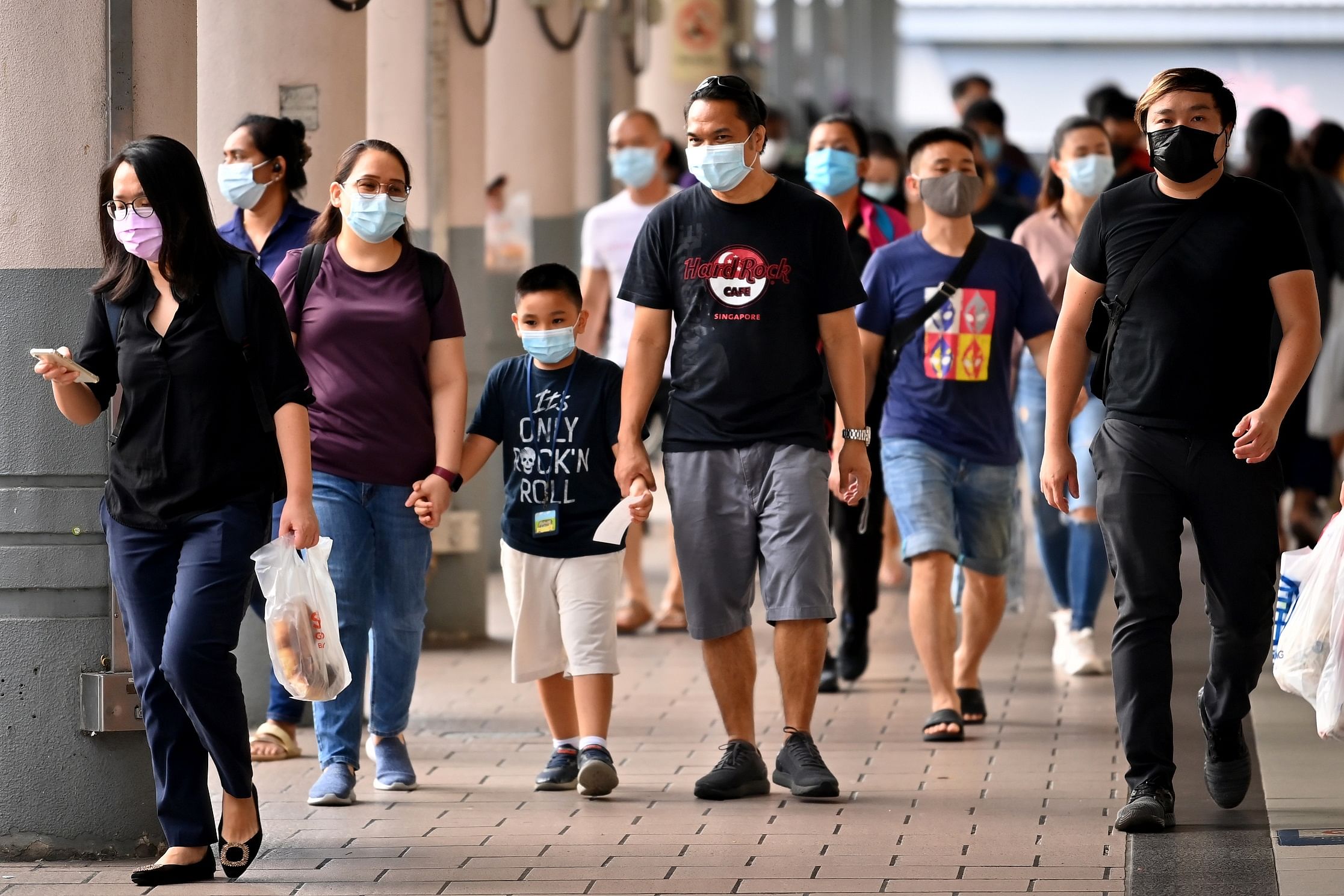2 years of Covid-19
Parenting in a pandemic: How has Covid-19 affected child-raising and our kids?
Sign up now: Get ST's newsletters delivered to your inbox

Over two years, parents could see changes happening in their children, but could never be sure what was causing the switch.
ST PHOTO: LIM YAOHUI
My son turned four in February, which makes him sort of a half-pandemic kid.
He has spent almost exactly 50 per cent of his life living under the cloud of Covid-19. In fact, the last time he saw most of his extended family, especially those who live overseas, was at his second birthday.
He was a very different child back then, back when we were all just starting to get worried about the virus, back before it even had its current name.
He was a shy, mild-mannered toddler, with seemingly random irrational toddler fears. He was terrified of candles (lit or otherwise), would hold his hand up to his ears when people were clapping and would burst into tears the moment he sensed his grand aunt step through the door.
Half of his life later, he is a boisterous, gung-ho sort of child, the kind that makes people without kids wish they went to an adults-only restaurant.
The frequency of screaming has increased sharply, as has the average volume of speech (both in terms of amount and intensity). These days, if he is awake, he is talking, or yelling, or making bus sounds.
His attention span also seems shorter, except when he is watching Cocomelon.
And these days, his face lights up whenever we mention his grand aunt is visiting.
In short, over the course of two years of lockdowns, home-based-learning and safe distancing, my son has become a completely different person.
But how much of this was caused by the pandemic?
I don't think it is possible to know.
As with the endeavour of parenting, the pandemic was something that frequently provides more questions than answers.
At every turn of the pandemic, new information was provided but with very little known about what should be done with this new data.
We knew a lot but understood very little. (Fortunately, this is not a new feeling for parents.)
We could see changes happening in our children, but could never be sure what was causing the switch, whether the change was permanent or whether it would matter in the long run.
In my household, the sight of anybody putting on a mask is now greeted with: "Where are you going?"
But I ask myself, so what if the mask has become an indicator of imminent departure? Did the mask-wearing do anything else to my kid?
And what of the sharp decrease in the number of play dates and the sharp increase in the amount of time spent in front of a screen?
For that matter, how did the two years of Zoom calls with his grandparents living in Malaysia change his relationship with them? He seemed to bond just fine when the reunion finally happened, but would it have been different if there was no separation in the first place?
Was having his parents at home all the time a good or bad thing? Maybe it's good that we got to spend a lot more time with him, but maybe it's bad that now we weren't always glad to see him.
In the before times, when we saw him for only a few hours in the morning and in the evening, he was never asked to go away because "daddy has a meeting".
Is seeing a happy parent for a little while each day better or worse than seeing an anxious parent all the time?
These are questions for which there are no answers. But we ask them anyway because second-guessing ourselves is part of the karma of being parents.
Raising a child is a daily personal social experiment, one where parents constantly tweak the variables, and hope it produces the desired outcomes.
Ultimately, parenting in a pandemic proved to be an exercise not in trying to find all the answers, but rather in figuring out what questions were truly important.
There was no real way to fully protect our children - both physically and mentally - from the pandemic, so we had to choose. We were essentially trying to choose what vestiges of the pre-pandemic lives were important enough to protect such that we would be willing to tolerate some Covid-19 risk.
Different parents made different decisions about this on everything, like when to go back to school to whether they should continue spending time with older, vulnerable relatives.
I think my family emerged relatively unscathed from the past two years but it is also clear to me that this was not because I was somehow better at managing the risks than anyone else. We just got lucky.
If I took away anything from the ups and downs of the pandemic, it is that there are no good parents or bad parents, just parents having good and bad days.


